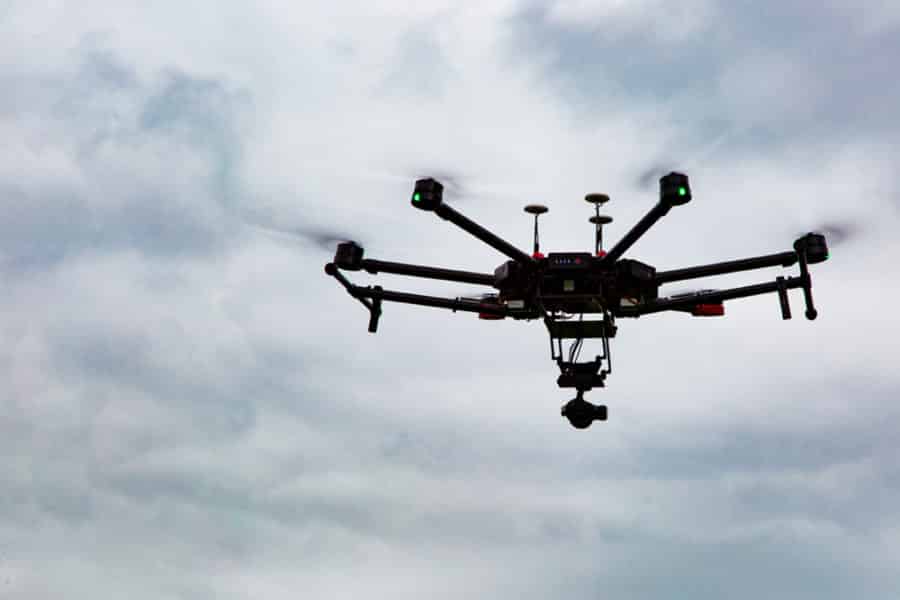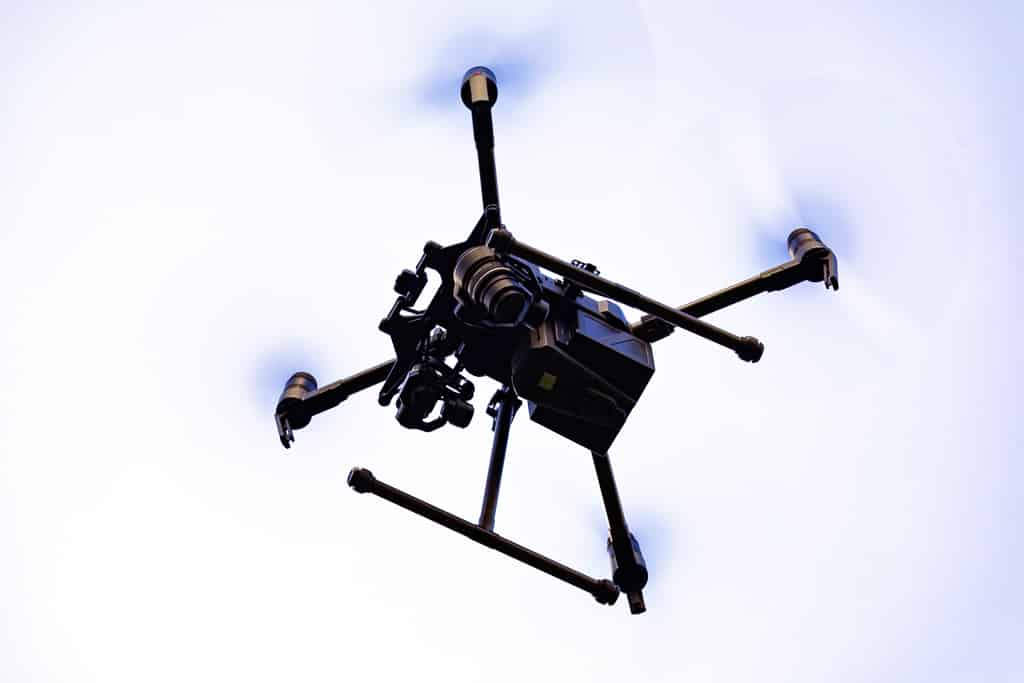
Vodafone Report on Cellular Connected Drones

Vodafone UK have published the findings of a study they commissioned regarding the potential benefits to the UK of safe and secure drone use. Working with WPI Economics, the report uses five case studies as its basis and draws some interesting conclusions regarding it’s potential in the UK.
Whilst acknowledging the potential of drones to improve productivity, aid the emergency services, and reduce workplace dangers, much emphasis is placed on the public perception of the threat that they pose. Recent polling suggests that 80% of the public would support wider drone use, if increased security measures were in place. They cite the fact that the greatest benefits that drones have to offer comes from flights Beyond Visual Line of Sight (BVLOS) – a fact widely acknowledged in commercial circles. Cellular connected drones that can be tracked and controlled beyond the VLOS restrictions and posited as one of the potential solutions.
Cellular connectivity allows for Unmanned Traffic Management Systems to be introduced as well as allowing locations tracked and the establishment of No Fly Zones that cold force drones to hover or land in cases of incursion.
Public opinion on the positive potential of drones was reported to be low. A fact which the report claims stems from a lack of understanding. It is felt that ‘increased familiarity with drone usage can drive more positive perceptions’. The poll that Vodafone carried out on more than 2000 adults suggested that public support was far higher than average when drone usage was linked to the emergency services, agriculture and construction. So this led them to base the report on five case studies
- Drones delivering medical goods
- Monitoring and responding to emergency situations
- Reporting to fires
- Surveying and monitoring construction
- Improving agriculture productivity
Each of these case studies aims to identify and quantify the benefits of drone use in these sectors, showing substantial advantages over traditional methods.
They make three recommendations to the UK government to ensure the establishment of safe and secure drone practices.
- Establishment of a blue light fund to allow emergency services and the NHS to trial drone use to see where benefits could be found
- Establish testing facilities for UTM and BVLOS operations
- Explore the value of cellular connectivity for establishing UTM systems and electronic conspicuity.
Expert Infrared Inspections for Accurate Thermal Assessments
Need professional thermographic analysis for your project? Our certified experts use the latest infrared technology to deliver precise results. Contact Drone Media Imaging today for expert thermal imaging services.









